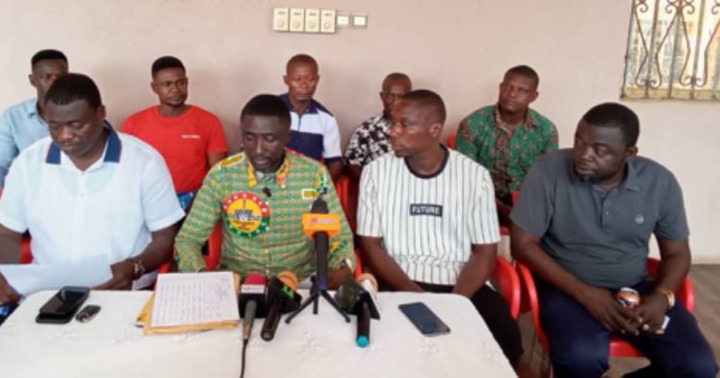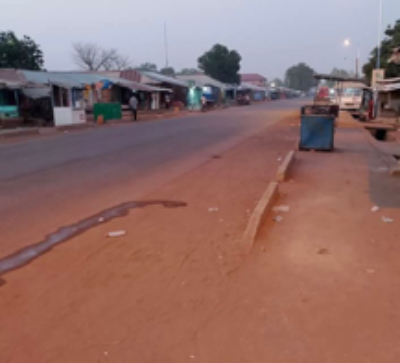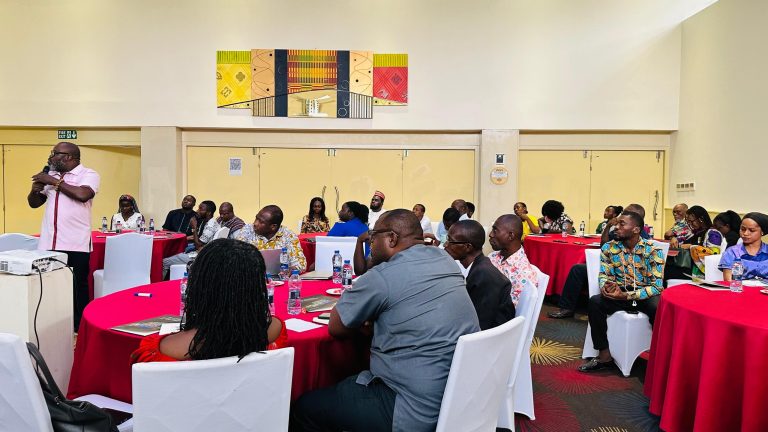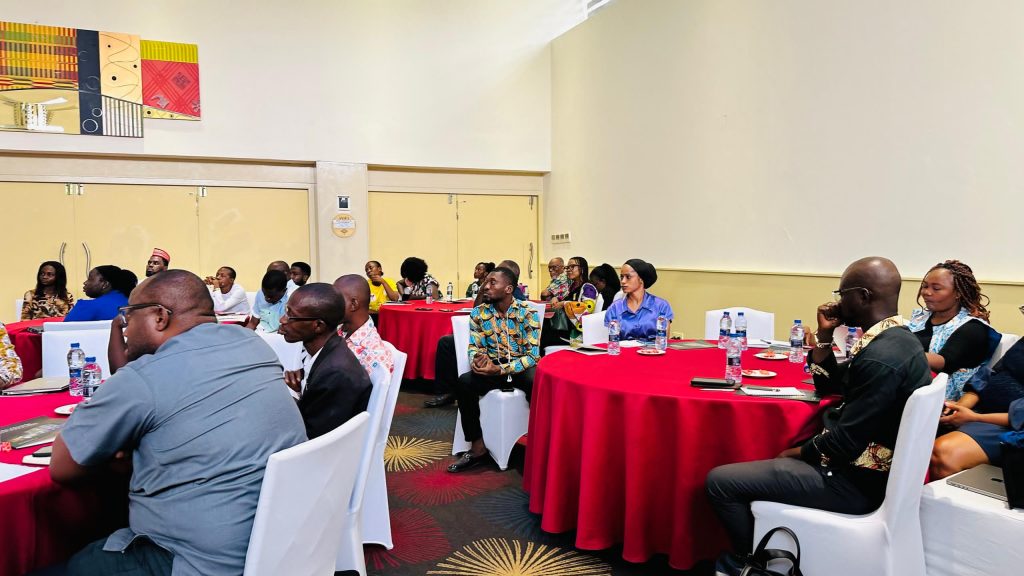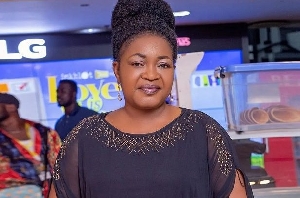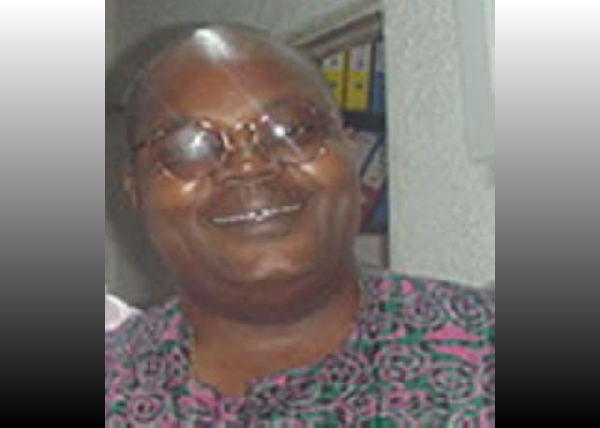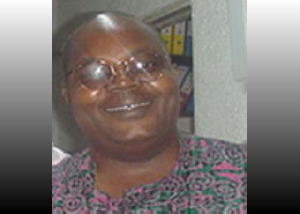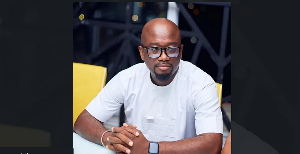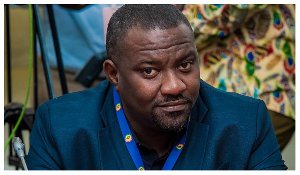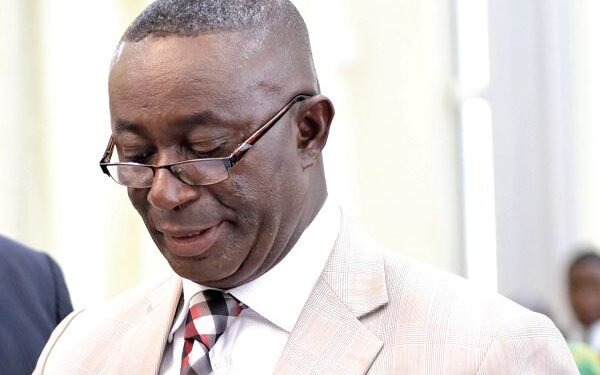I. EXECUTIVE SUMMARY
Given Ghana’s current GDP, estimated at about $74.3 billion (1.1 trillion GHS) in 2024,the country remains constrained by an outdated 8-hour economic model, limiting its ability to unlock new market opportunities, drive job creation, and boost investment inflows.
Most businesses shut down by 10 PM, resulting in billions in unrealized revenue and restricted economic productivity. Meanwhile, global 24-hour economic leaders—such as Singapore, Rwanda, Dubai, and New York—have leveraged the Blue Ocean Strategy (BOS)to eliminate market constraints, optimize business hours, and create entirely new industries beyond the traditional competition.
Rather than merely extending work hours within saturated markets, these economies pioneered innovation-driven, uncontested business models that generate new demand, attract investments, and enhance economic resilience. If Ghana successfully transitions to a BOS-driven 24-hour economy, its GDP could grow by an estimated25-40%, potentially reaching between $92.88 billion and $104.02 billion (1.375 trillion to 1.54 trillion GHS)within five years while creating over 3 million sustainable jobs across multiple industries.
While successful 24-hour economies such as Singapore, Dubai, and Rwanda provide valuable insights, Ghana’s transition requires a localized adaptation of BOS strategies. Key challenges—including energy reliability, security concerns, and cultural readiness for 24-hour operations—must be carefully addressed. Strategic investments in renewable energy solutions, AI-driven security infrastructure, and targeted awareness campaigns can help mitigate these barriers, ensuring a smooth and sustainable shift toward a 24-hour economy tailored to Ghana’s specific needs. Ghana’s fintech sector processes over $121.2 billion in annual mobile money transactions, yet outdated working hours and regulatory barriers limit its full potential.
Traditional banking structures and financial services remain constrained by an 8-hour operational model, preventing seamless transactions and reducing access to financial services for millions, particularly in underserved communities. A BOS-driven approach would enable AI-powered 24-hour banking, blockchain-secured digital payments, and fintech expansion into untapped rural markets, driving financial inclusion and unlocking billions in additional revenue. Beyond fintech, Ghana’s logistics and trade infrastructure struggles with inefficiencies, despite the country’s strategic position as a trade hub within the African Continental Free Trade Area (AfCFTA). The ports handle millions of tons of cargo annually, yet bureaucratic delays, poor integration of digital logistics systems, and time-restricted operations prevent full optimization.
A BOS-driven transformation would introduce AI-powered customs clearance, 24-hour automated warehousing, and blockchain-based supply chain authentication, cutting port delays and positioning Ghana as West Africa’s dominant trade and logistics center. The tourism and entertainment industries also remain underutilized, with Ghana’s hospitality sector largely shutting down by 10 PM. In comparison, global tourism powerhouses like Thailand and the UAE derive over 10% of their GDP from night-time economies. Ghana, with its rich cultural heritage and emerging Afrobeat scene, has the potential to develop 24-hour entertainment districts, smart ticketing for global tourism, and digital experience platforms to capture international markets.
A BOS-led approach would redefine Ghana’s tourism industry beyond seasonal visitors, fostering a year-round economy that attracts high-value spending. Workforce inefficiencies also present a major challenge, with the country yet to fully integrate into the global digital labor economy. AI, automation, and freelancing platforms have reshaped employment worldwide, yet Ghana’s current labor structure lacks the flexibility to compete in remote work and outsourced services. A BOS-inspired 24-hour workforce model would create smart digital hubs, provide AI-assisted remote job matching, and enable businesses to harness a global talent network.
Sustainability concerns must also be addressed, as high energy costs and environmental degradation, driven by illegal mining (galamsey) and deforestation, threaten Ghana’s long-term economic resilience. A BOS-led shift toward renewable energy, AI-driven efficiency models, and night-time circular economies would reduce operational costs and position Ghana as a leader in Africa’s green economy. With the right policies, strategic investments, and a commitment to innovation, Ghana can break free from outdated economic constraints and emerge as West Africa’s premier BOS-driven 24-hour economy.
To successfully implement BOS, Ghana must integrate 24-hour economic zones, AI-led workforce training, and targeted policy reforms—including flexible labor laws, tax incentives for night-time businesses, and automated licensing adjustments to encourage BOS-driven enterprises Will Ghana seize this opportunity to redefine its economic destiny, or remain bound by outdated constraints? The time for transformation is now.
II. INTRODUCTION
For decades, Ghana’s economic structure has remained heavily reliant on primary commodities, with gold, cocoa, and crude oil constituting the bulk of its exports. However, despite its abundant natural and mineral resources, the nation continues to grapple with severe economic challenges, high indebtedness, and financial instability. By the end of 2024, Ghana’s debt-to-GDP ratio had surpassed 83%, driven by external shocks, fiscal mismanagement, and a lack of economic diversification. This persistent over reliance on volatile commodity exports has made the economy highly susceptible to global price fluctuations, limiting long-term resilience and sustainable growth.
A Look at Blue Ocean and Red Ocean Strategies
Ghana’s economic development has traditionally been framed within a ROS, where businesses and industries compete within saturated markets, leading to diminishing profit margins, market saturation, and economic stagnation. The competitive landscape under ROS fosters price wars, resource depletion, and limited innovation, ultimately restricting economic expansion.
In contrast, BOS—a concept pioneered by W. Chan Kim and Renée Mauborgne in their 2005 book Blue Ocean Strategy: How to Create Uncontested Market Space and Make the Competition Irrelevant—advocates for the creation of new, uncontested market spaces through innovation, differentiation, and value creation. Instead of competing within existing industry boundaries, BOS encourages businesses and economies to eliminate inefficiencies, reduce redundant costs, raise industry standards, and create new demand. This model has been successfully implemented in economies such as Singapore, Dubai, and New York, enabling them to unlock multi-billion-dollar industries and position themselves as global economic hubs.
Core Principles of BOS
To successfully transition to a 24-hour economy, Ghana must apply the core principles of BOS:
- Value Innovation: Unlike ROS, which focus on outperforming competitors in an existing market, BOS combines low cost with differentiation, creating entirely new demand instead of engaging in price wars. This approach allows Ghana to develop innovative, high-value industries rather than relying on cost-cutting and competition-based growth.
- Eliminate-Reduce-Raise-Create (ERRC) Grid: This four-step framework helps identify areas for economic transformation:
- Eliminate unnecessary costs and inefficiencies in Ghana’s current economic model.
- Reduce reliance on volatile commodity exports and inefficient business hours.
- Raise industry standards in fintech, digital trade, and logistics to compete globally.
- Create new market spaces in 24-hour commerce,AI-driven industries, and sustainable night-time economies.
- Breaking Industry Boundaries: BOS encourages redefining industry limits by offering unique value propositions, attracting new investors, and expanding beyond competition. Ghana can leverage AI-driven automation, smart logistics, and renewable energy solutions to create industries that do not yet exist in the region.
- Non-Customer Focus: Traditional economic models target existing consumers, but BOS focuses on non-customers—those who are not currently engaged in the economy. Ghana must design inclusive, technology-driven policies to integrate rural populations, informal workers, and digital entrepreneurs into the formal economy through 24-hour business models.
ROS has long dominated Ghana’s business landscape, leading to price wars, market saturation, and reduced profit margins. But must economic success always be a zero-sum game? Why should Ghana fight over limited markets when it can create entirely new ones through BOS?
The Case for a BOS 24-Hour Economy in Ghana
Ghana’s current economic framework, which largely follows an outdated 8-hour model, constrains trade, industrial productivity, and employment capacity. This structural inefficiency results in billions in unrealized revenue, hindering economic growth and investment potential. Cocoa production, once a pillar of Ghana’s foreign exchange earnings, has seen a sharp decline—from 1.047 million metric tons in 2020/21 to an estimated 750,000 metric tons in 2023/24—due to climate change, aging farms, smuggling, and illegal mining (galamsey). Simultaneously, illegal small-scale mining has severely degraded Ghana’s forests and water bodies, polluting major rivers such as Pra, Ankobra, and Offin. The environmental devastation, fueled by corruption and unemployment, poses long-term threats to agriculture, water security, and economic stability.
Moreover, Ghana’s overreliance on commodity exports with minimal value addition exposes the economy to external market volatility. According to the Ghana 2023 Trade Report published by the Ghana Statistical Service, three products accounted for 80.6% of all exports in 2023: gold (GH₵84.4 billion), mineral fuels and oils (GH₵44.6 billion), and cocoa beans and products (GH₵20.9 billion). This heavy reliance on primary commodities underscores the country’s limited industrialization and the need to diversify its export base. At the same time, a 2023 world bank report indicates that manufactured goods—an essential driver of sustainable economic resilience—account for only 5.99% of Ghana’s total exports, underscoring the nation’s significant industrialization gap. Without a strategic shift toward value-added production and diversified export sectors, Ghana risks prolonged economic vulnerability and reduced global competitiveness.
Ghana’s economic model remains stuck in traditional competition-based strategies that limit industrial growth and innovation. Meanwhile, economies like Singapore, Dubai, and Rwanda have leveraged BOS to create high-value industries beyond competition. Why should Ghana remain trapped in outdated economic strategies when BOS provides a pathway to economic leadership?
A Transformative Shift: Integrating BOS with Ghana’s 24-Hour Economy
A BOS-driven 24-hour economy presents Ghana with a transformative opportunity to diversify its economic base, expand job opportunities, and unlock high-growth industries. By leveraging AI-powered fintech, smart logistics, digital commerce, and sustainable night-time industries, Ghana can create new market spaces, attract foreign investment, and strengthen its global competitiveness. This economic shift is not merely about extending business hours—it is about fundamentally redefining Ghana’s economic trajectory, ensuring the nation moves beyond commodity dependence and market saturation to become West Africa’s hub for digital trade, innovation, and industrialization.
Leveraging AfCFTA and Digital Transformation for Economic Growth
The AfCFTA, the world’s largest free trade zone, integrates 55 African nations into a single market of 1.3 billion people, with a combined GDP exceeding $3.4 trillion. This presents an opportunity for Ghana to capitalize on intra-African trade, strengthen value-added manufacturing, and position itself as a strategic regional hub. Countries such as Rwanda and Kenya have embraced digital transformation and regulatory incentives to drive multi-billion-dollar industries, setting a precedent that Ghana can replicate.
This paper explores how Ghana can integrate BOS principles with a 24-hour economic framework, leveraging AfCFTA’s single market, digital transformation, and regulatory incentives to drive long-term economic prosperity. By embracing BOS-driven innovation, Ghana can move beyond competition-based growth, create high-value industries, and position itself as Africa’s leader in the next economic revolution.
III. SECTOR-SPECIFIC BOS OPPORTUNITIES IN GHANA’S 24-HOUR ECONOMY
A BOS-driven 24-hour economy is not merely about extending business hours; it is about redefining industries, unlocking new market spaces, and leveraging innovation to drive Ghana’s economic transformation. By targeting fintech, logistics, tourism, workforce development, and sustainability, Ghana can create uncontested itself as a regional leader in AI-driven commerce, digital finance, and trade.
Ghana’s fintech, logistics, and tourism industries remain constrained by outdated models that limit economic expansion. But must we continue operating under traditional constraints? Why should Ghana settle for incremental growth when it can redefine entire industries with BOS?
1️. Fintech & Digital Economy
The Opportunity
Ghana’s fintech sector has witnessedexponential growth,with mobile money transactionssurpassing $121.2 billion annually—a figure that could more than double under aBOS-driven 24-hour economy. Despite this progress,banking and financial services remain constrained by outdated working hours, limiting economic activity.
BOS-Driven Solutions
- AI-Driven 24-Hour Banking: Implement AI-powered financial services, chatbots, and automated loan approvals, enabling real-time, round-the-clock financial transactions.
- Blockchain-Powered Trade Finance: A 24-hour digital economy can utilize blockchain for secure cross-border trade, strengthening Ghana’s role in AfCFTA’s digital trade ecosystem.
- Mobile Money & E-Commerce Expansion: Integrating fintech with e-commerce and digital payments can increase transaction volumes, attract foreign investment, and boost financial inclusion in under-served communities.
- Cryptocurrency & Decentralized Finance (DeFi): As global digital assets grow, Ghana can position itself as a hub for regulated crypto and DeFi solutions, creating entirely new financial markets beyond traditional banking.
Projected Impact
- Boosting Digital Financial Transactions: A fully digitised 24-hour financial ecosystem could increase mobile money transactions by 50%, unlocking billions in additional revenue and investment potential.
- Enhancing Financial Inclusion: AI-powered digital banking can expand services to rural populations, integrating millions of unbanked individuals into the financial system.
2️. Smart Logistics & Trade
The Opportunity
Ghana’s ports handle millions of tons of cargo annually, yet inefficient supply chains, bureaucratic delays, and time-restricted logistics operations prevent the country from maximizing its trade potential.WithAfCFTA creating the world’s largest single market, Ghana must move beyond conventional, Red Ocean logistics models and pioneer AI-driven, 24-hour trade hubs to secure a dominant position in intra-African trade.
BOS-Driven Solutions
- AI-Powered Trade Facilitation: Implement AI-driven customs clearance and automated port logistics, reducing shipment processing time from days to hours.
- 24-Hour Automated Warehousing: Establish smart warehouses utilizing robotics, IoT sensors, and predictive analytics to optimize supply chains.
- Blockchain-Based Trade Documentation: Introduce blockchain for cross-border trade finance and supply chain authentication, minimizing fraud and improving efficiency.
- 24/7 Free Trade Zones (FTZs): Develop BOS-led smart logistics corridors to attract manufacturers and exporters seeking seamless, round-the-clock trade infrastructure.
Projected Impact
·Reduced Port Delays by 50%: AI-driven automation can cut port clearance times, boosting Ghana’s attractiveness as a regional trade hub.
·Increased Non-Traditional Exports: A 24-hour logistics economy can expand Ghana’s manufacturing and processed goods exports, reducing reliance on raw commodities.
3️. Tourism & Entertainment
The Opportunity
Globally, the night-time economy contributes over 10% of GDP in leading tourism hubs like Thailand and the UAE. However, in Ghana, the hospitality and tourism industry largely shuts down by 10 PM, limiting the country’s potential to attract high-value tourism spending.
Ghana’s vibrant cultural heritage, Afrobeat music industry, and thriving nightlife scene present untapped billion-dollar opportunities—if leveraged through BOS innovation.
BOS-Driven Solutions
·24-Hour Cultural & Creative Districts: Designate entertainment hubs in Accra, Kumasi, and Takoradi, supported by government incentives for late-night commerce.
· AI-Powered Tourism Experiences: Deploy AI-driven virtual reality (VR) and augmented reality (AR) tourism guides, allowing visitors to explore Ghana’s heritage sites 24/7.
· Smart Ticketing & Cashless Tourism: Implement blockchain-powered ticketing systems for tourist attractions, concerts, and events, enabling seamless, round-the-clock access.
·Expanded Night-Time Retail & Gastronomy: Introduce policies that incentivize 24-hour dining, shopping, and cultural festivals, maximizing tourist spending.
Projected Impact
· Tourism Contribution to GDP Could Increase by 40%: A BOS-driven 24-hour tourism model could elevate Ghana’s global competitiveness, attracting millions of high-spending visitors.
·Ghana as a Global Afrobeat & Cultural Hub: Positioning Ghana as a leading destination for music festivals, film productions, and nightlife tourism can expand its creative economy.
4️. Workforce & Gig Economy
The Opportunity
AI, automation, and freelancing platforms are reshaping global employment. Countries like India and the Philippines dominate the outsourced digital workforce, generating billions in remote work income. However, Ghana has yet to fully integrate its labor force into the global gig economy.
BOS-Driven Solutions
· AI-Optimized Work Scheduling: Create smart workforce platforms that match Ghanaian professionals with global freelance and remote work opportunities 24/7.
· E-Learning & Digital Skill Hubs: Establish 24-hour AI-driven education platforms, training youth in coding, AI development, data science, and cybersecurity.
· 24-Hour Co-Working Spaces & Digital Hubs: Encourage night-time productivity hubs to accommodate freelancers, remote teams, and digital entrepreneurs.
Projected Impact
· $5 Billion Annual Earnings from the Gig Economy: A fully digitized workforce can capture a significant share of global remote work opportunities, boosting national income.
· Over 1 Million Digital Jobs Created: A BOS-driven workforce strategy could empower Ghanaian professionals to compete globally in high-demand tech jobs.
5️. Sustainable Night-Time Industries
The Opportunity
A24-hour economy must be cost-effective and sustainable. Ghana’shigh energy costs and environmental challengesrequire aBOS-driven shift towards renewable energy and AI-driven efficiencytoreduce operating expenses while promoting green economic transformation.
BOS-Driven Solutions
Solar-Powered Smart Cities:
· Invest in solar and wind energy solutions to power AI-driven industrial zones and 24-hour business districts.
· Energy-Efficient Urban Infrastructure: Implement smart grids, LED lighting, and sustainable transport solutions to reduce emissions and operational costs.
· Night-Time Recycling & Circular Economy: Develop BOS-led recycling hubs and waste-to-energy facilities, creating a sustainable resource economy.
Projected Impact
· 50% Reduction in Energy Costs for 24-Hour Industries: Renewable energy integration can drive profitability and sustainability.
· Ghana as Africa’s Leader in Green Innovation: A BOS-led sustainable economy can attract eco-conscious investors and businesses.
The Path Forward
By adopting BOS, Ghana can leverage a 24-hour economy to create new, uncontested markets, attract billions in investment, and generate high-value industries. This shift is not just about keeping businesses open longer—it’s about pioneering a new economic model that secures Ghana’s place as a leader in the global digital and trade revolution.
IV. IMPLEMENTATION CHALLENGES OF A BOS-DRIVEN 24-HOUR ECONOMY
Transitioning Ghana into a Blue Ocean Strategy (BOS)-driven 24-hour economy presents a transformative opportunity, yet its execution is not without challenges. Successful implementation requires overcoming structural, regulatory, financial, and societal barriers. This section outlines the key obstaclesand proposes strategic solutions to ensure Ghana’s smooth transition into a globally competitive, innovation-driven economy.
1. Resistance to Change & Legacy Systems: Many businesses, policymakers, and institutions operate within traditional competition-based economic models, making them resistant to new business paradigms. The mindset shift required for BOS adoption—from competition to market creation—faces institutional inertia, cultural barriers, and risk aversion.
2. High Initial Investment & Infrastructure Bottlenecks: Developing a 24-hour economy requires significant investments in digital infrastructure, smart logistics hubs, AI-driven business models, and renewable energy solutions. Many SMEs and startups may struggle to finance such shifts, while outdated public infrastructure could slow implementation.
3. Regulatory Gaps & Bureaucratic Hurdles: Ghana’s regulatory framework is structured around traditional business hours, banking regulations, and outdated labor laws. Bureaucratic inefficiencies may slow down the approval of 24-hour trade licenses, fintech innovations, and smart logistics reforms.
4. Workforce Readiness & Skill Gaps: The transition to a digital-first 24-hour economy will require a workforce skilled in AI, automation, smart logistics, fintech, and cybersecurity. However, Ghana’s current workforce training is not fully aligned with 4IR job demands.
5. Security & Infrastructure Limitations: A 24-hour economy requires enhanced security, urban planning, and reliable infrastructure to sustain night-time industries. Ghana faces public safety concerns, unreliable electricity supply, and inadequate night-time transportation services.
Overcoming Barriers for a BOS-Driven 24-Hour Economy
Despite these challenges, Ghana has a historic opportunity to leapfrog into a BOS-led 24-hour economy. The key to successful implementation lies in government-driven policy innovation, strategic private sector investment, and AI-powered digital transformation. By removing regulatory bottlenecks, enhancing digital infrastructure, and upskilling the workforce, Ghana can successfully transition from a competition-based economyto amarket-creating global powerhouse.
V. POLICY & INVESTMENT RECOMMENDATIONS FOR A BOS-DRIVEN 24-HOUR ECONOMY IN GHANA
To successfully implement a Blue Ocean Strategy (BOS)-driven 24-hour economy, Ghana must introduce strategic policies, regulatory reforms, and targeted investments to create uncontested market spaces, drive innovation, and enhance economic competitiveness. Below are key recommendations for government, private sector players, and international investors.
1️. Government Policy Interventions
The government must create an enabling environment that fosters innovation, attracts investments, and supports businesses transitioning to 24-hour operations.
Establish Special 24-Hour Economic Zones (24EZs)
- Designate Accra, Kumasi, Takoradi, and other major cities as pilot 24-hour economic hubs.
- Provide tax incentives, business grants, and flexible regulatory frameworks for companies investing in night-time industries, fintech, and smart logistics.
- Strengthen security infrastructure and public services to ensure safety for businesses operating round the clock.
Digitization & AI Integration in Public Services
- Implement AI-powered e-government services, allowing businesses to operate seamlessly 24/7.
- Expand digital payment systems to facilitate cross-border trade within AfCFTA’s framework.
Workforce Development & Labor Policy Reforms
- Introduce AI-driven workforce scheduling to align labor supply with 24-hour industry demands.
- Provide incentives for night-shift workers, including health and transport allowances.
- Invest in digital skill training and automation technologies to prepare the workforce for BOS-driven industries.
2️. Incentives for Private Sector Growth
The private sector is critical in driving BOS implementation. The government must offer attractive incentives to encourage businesses to invest in 24-hour sectors.
Corporate Tax Relief for BOS Startups & AI-Driven Businesses
- Offer 5-year tax holidays for startups in fintech, AI logistics, night-time tourism, and digital commerce.
- Reduce import duties on AI and automation technologies for businesses implementing BOS-driven solutions.
Public-Private Partnerships (PPPs) for Infrastructure Development
- Develop smart transport and logistics networks through PPP collaborations.
- Establish renewable energy zones to power 24-hour industries sustainably.
Investment in Night-Time Commerce & Entertainment
- Provide grants and low-interest loans for businesses in late-night tourism, entertainment hubs, and cultural innovation districts.
- Promote 24-hour retail and hospitality industries with incentives for extended business hours.
3️. Attracting Foreign & Domestic Investment
To unlock Ghana’s BOS-driven 24-hour economy, attracting both foreign direct investment (FDI) and domestic capital is crucial.
BOS Investment & Trade Promotion under AfCFTA
- Position Ghana as Africa’s premier BOS-driven economy by leveraging AfCFTA trade corridors.
- Develop blockchain-backed trade financing for seamless transactions across Africa.
Creation of a 24-Hour AI & Digital Trade Incubator
- Establish an AI-driven business incubator to support digital entrepreneurs, gig workers, and remote professionals.
- Partner with global investors and tech firms to fund BOS-led innovations.
Sustainable Energy Investments for 24-Hour Operations
- Develop solar-powered industrial parks to support AI-driven logistics hubs and smart factories.
- Offer green incentives for companies investing in energy-efficient urban infrastructure.
Ghana stands at a pivotal economic juncture. To transition into a globally competitive 24-hour economy, strategic policy interventions, private sector incentives, and forward-thinking investments are imperative. A BOS-driven approach will not only diversify Ghana’s economy but also establish the country as West Africa’s hub for AI-powered trade, fintech, and sustainable commerce.
Next Steps:
- Launch pilot 24-Hour Economic Zones (24EZs) in Ghana’s major cities.
- Expand digital financial infrastructure to facilitate seamless BOS-driven trade.
- Create AI-powered public-private partnerships to drive 24-hour economic transformation.
By embracing these policy and investment recommendations, Ghana can unlock billions in economic potential, enhance employment, and secure its place as a leader in Africa’s digital and trade revolution.
VI. CONCLUSION: GHANA’S FUTURE AS A BOS-DRIVEN 24-HOUR ECONOMY
Ghana stands at apivotal economic crossroads. The country’s dependence on primary commodity exports, an outdated8-hour economic model, and limited industrial diversification havehindered sustainable growth, job creation, and global competitiveness. Meanwhile, leading economies—includingSingapore, Dubai, and Rwanda—haveleveraged Blue Ocean Strategy (BOS)to create uncontested market spaces, unlockingmulti-billion-dollar industriesand positioning themselves as innovation-driven economic hubs.
Totransform its economic trajectory, Ghanamust move beyond Red Ocean competition-based modelsand fully embrace BOS—a strategy that focuses onmarket creation, value innovation, and differentiation. The adoption of a24-hour economy, powered byAI-driven fintech, smart logistics, digital commerce, and sustainable night-time industries, presents anunparalleled opportunity to drive GDP growth, attract foreign investment, and create high-value jobs.
However, this transformation requiresbold, coordinated actionacross government, private sector, and global investors. Targeted policy reforms, smart infrastructure investments, and public-private partnerships (PPPs)will be essential in ensuring aseamless transitionto Ghana’sBOS-driven 24-hour economy. Additionally, leveragingAfCFTA’s single market, Fourth Industrial Revolution (4IR) technologies, and regulatory incentiveswill enable Ghana to establish itself asWest Africa’s premier hub for digital trade, AI-driven industries, and sustainable industrialization.
This shift is not merely aboutkeeping businesses open longer—it is about fundamentallyredefining Ghana’s economic future. By adoptingBOS principles, Ghana canexpand its economic base, enhance itsglobal influence, and become a model ofinnovation-driven prosperity in Africa. The time to act is now.
DISCLAIMER: The Views, Comments, Opinions, Contributions and Statements made by Readers and Contributors on this platform do not necessarily represent the views or policy of Multimedia Group Limited.
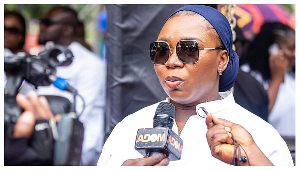 Fatimatu Abubakar is the former Minister of Information
Fatimatu Abubakar is the former Minister of Information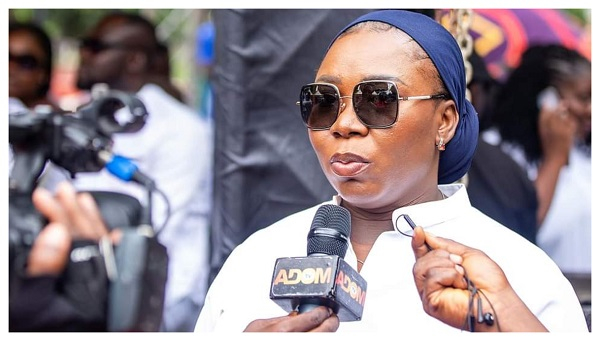








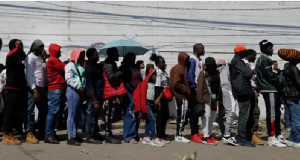
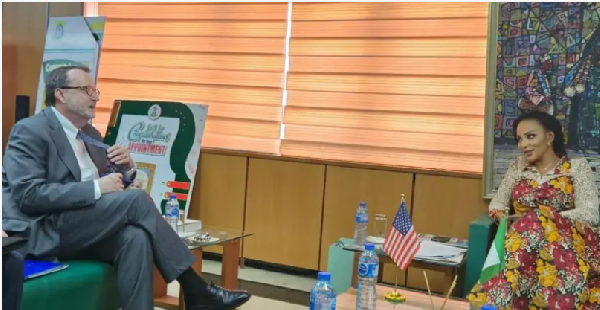


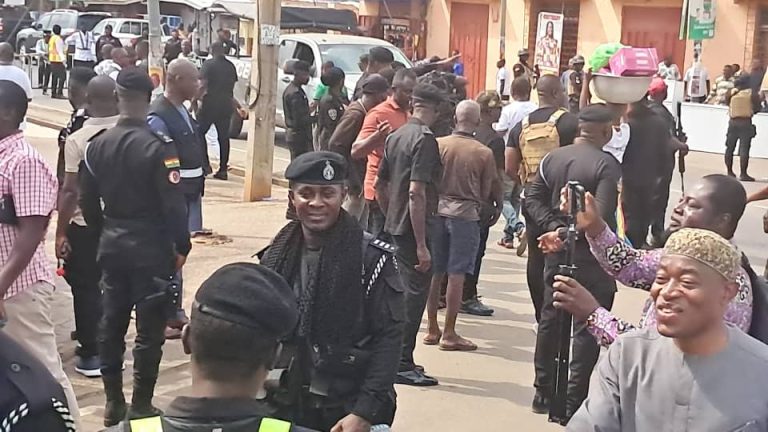

 ……
……









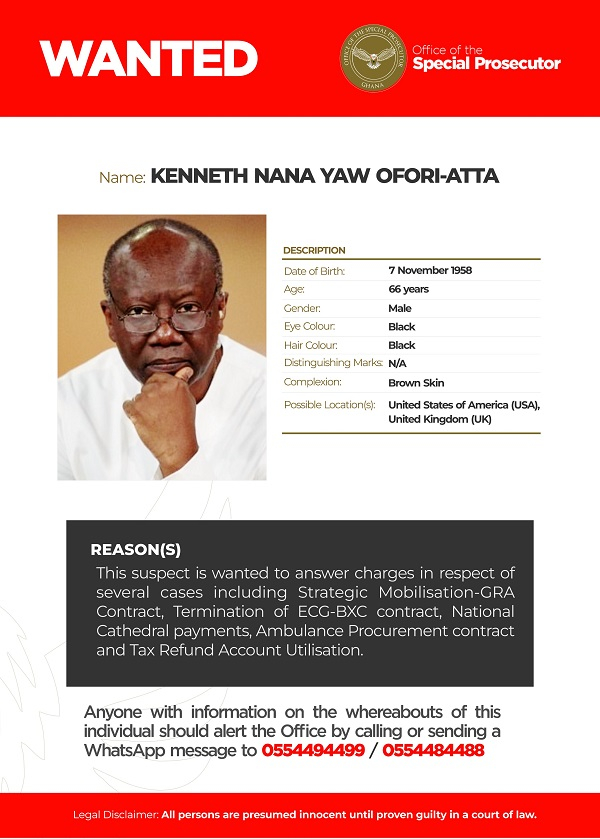
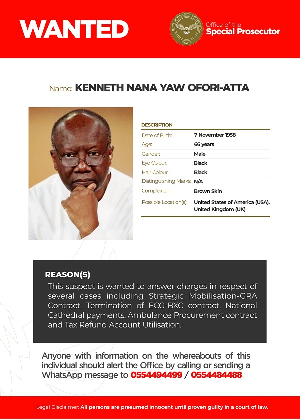

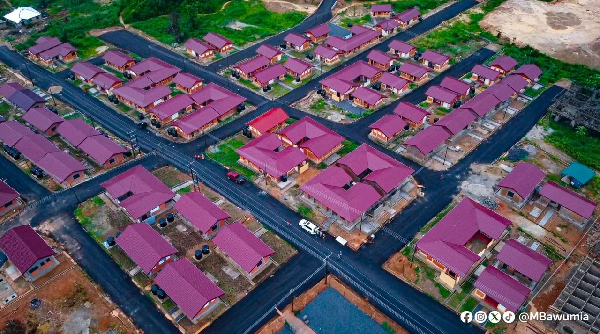
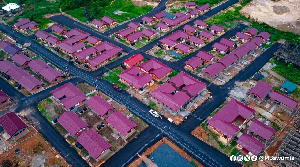





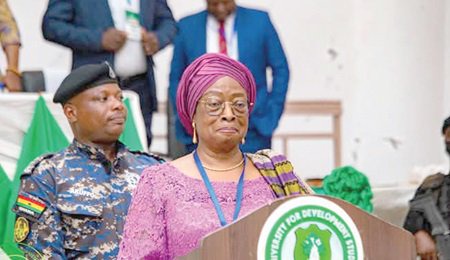
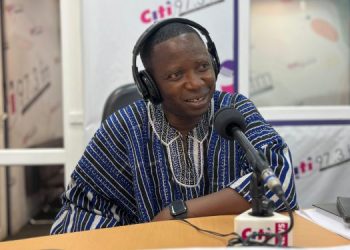
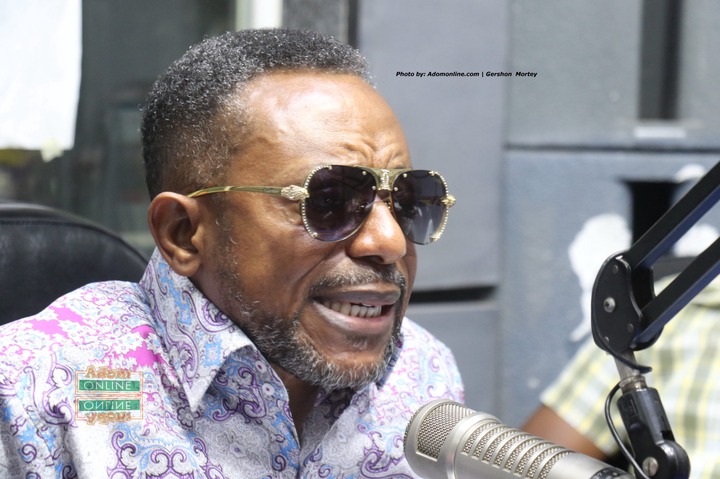
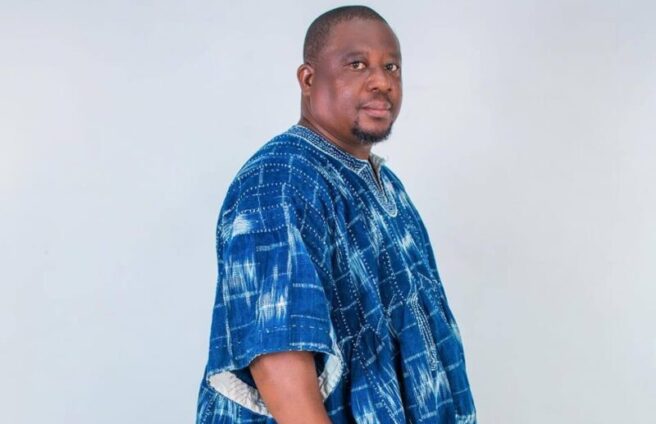

 The Ghana Police Service has given a General Lance Corporal ten days to produce an escaped murder suspect he was guarding at the Hospital.
The Ghana Police Service has given a General Lance Corporal ten days to produce an escaped murder suspect he was guarding at the Hospital.





